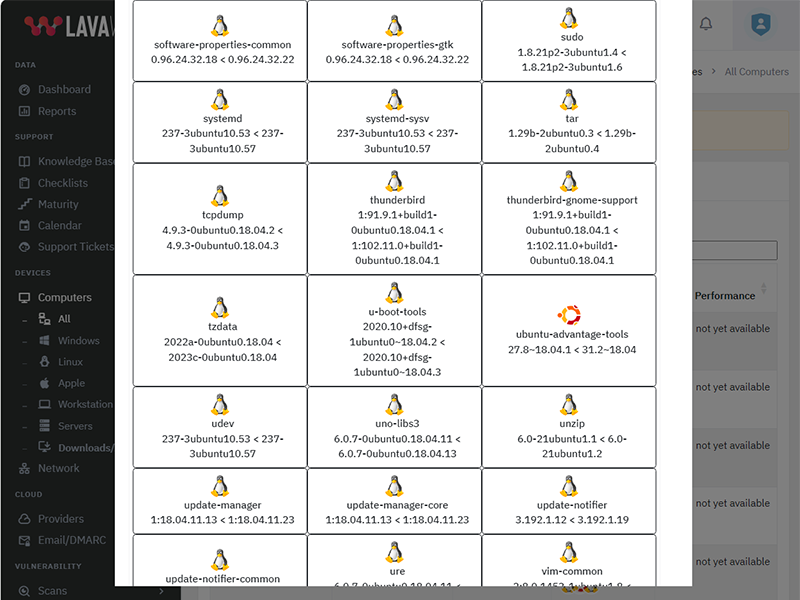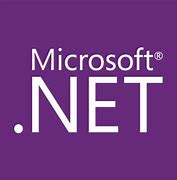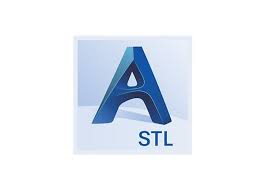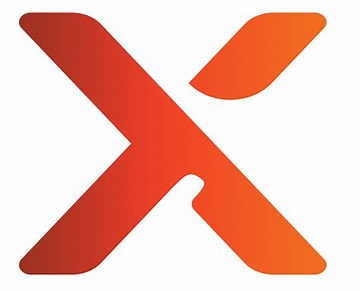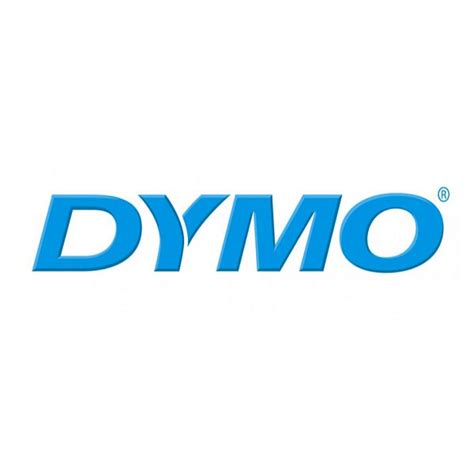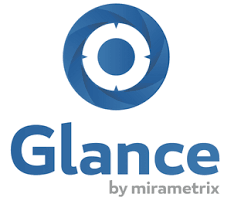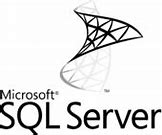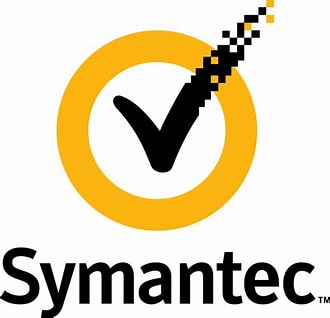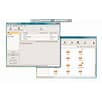
Update MySQL Workbench to version 8.0.41
What patches are you missing?
CVE Vulnerabilities for MySQL Workbench
| CVE | Published | Severity | Details | Exploitability | Impact | Vector |
| CVE‑2022‑1292 | 2022‑05‑03 16:15:19 | CRITICAL (10) | The c_rehash script does not properly sanitise shell metacharacters to prevent command injection. This script is distributed by some operating systems in a manner where it is automatically executed. On such operating systems, an attacker could execute arbitrary commands with the privileges of the script. Use of the c_rehash script is considered obsolete and should be replaced by the OpenSSL rehash command line tool. Fixed in OpenSSL 3.0.3 (Affected 3.0.0,3.0.1,3.0.2). Fixed in OpenSSL 1.1.1o (Affected 1.1.1-1.1.1n). Fixed in OpenSSL 1.0.2ze (Affected 1.0.2-1.0.2zd). | 4 | 6 | NETWORK |
| CVE‑2021‑44533 | 2022‑02‑24 19:15:09 | MEDIUM (5) | Node.js < 12.22.9, < 14.18.3, < 16.13.2, and < 17.3.1 did not handle multi-value Relative Distinguished Names correctly. Attackers could craft certificate subjects containing a single-value Relative Distinguished Name that would be interpreted as a multi-value Relative Distinguished Name, for example, in order to inject a Common Name that would allow bypassing the certificate subject verification.Affected versions of Node.js that do not accept multi-value Relative Distinguished Names and are thus not vulnerable to such attacks themselves. However, third-party code that uses node's ambiguous presentation of certificate subjects may be vulnerable. | 4 | 1 | NETWORK |
| CVE‑2021‑44532 | 2022‑02‑24 19:15:09 | MEDIUM (5) | Node.js < 12.22.9, < 14.18.3, < 16.13.2, and < 17.3.1 converts SANs (Subject Alternative Names) to a string format. It uses this string to check peer certificates against hostnames when validating connections. The string format was subject to an injection vulnerability when name constraints were used within a certificate chain, allowing the bypass of these name constraints.Versions of Node.js with the fix for this escape SANs containing the problematic characters in order to prevent the injection. This behavior can be reverted through the --security-revert command-line option. | 4 | 1 | NETWORK |
| CVE‑2021‑44531 | 2022‑02‑24 19:15:09 | HIGH (7) | Accepting arbitrary Subject Alternative Name (SAN) types, unless a PKI is specifically defined to use a particular SAN type, can result in bypassing name-constrained intermediates. Node.js < 12.22.9, < 14.18.3, < 16.13.2, and < 17.3.1 was accepting URI SAN types, which PKIs are often not defined to use. Additionally, when a protocol allows URI SANs, Node.js did not match the URI correctly.Versions of Node.js with the fix for this disable the URI SAN type when checking a certificate against a hostname. This behavior can be reverted through the --security-revert command-line option. | 2 | 5 | NETWORK |
| CVE‑2021‑3712 | 2021‑08‑24 15:15:10 | HIGH (7) | ASN.1 strings are represented internally within OpenSSL as an ASN1_STRING structure which contains a buffer holding the string data and a field holding the buffer length. This contrasts with normal C strings which are repesented as a buffer for the string data which is terminated with a NUL (0) byte. Although not a strict requirement, ASN.1 strings that are parsed using OpenSSL's own "d2i" functions (and other similar parsing functions) as well as any string whose value has been set with the ASN1_STRING_set() function will additionally NUL terminate the byte array in the ASN1_STRING structure. However, it is possible for applications to directly construct valid ASN1_STRING structures which do not NUL terminate the byte array by directly setting the "data" and "length" fields in the ASN1_STRING array. This can also happen by using the ASN1_STRING_set0() function. Numerous OpenSSL functions that print ASN.1 data have been found to assume that the ASN1_STRING byte array will be NUL terminated, even though this is not guaranteed for strings that have been directly constructed. Where an application requests an ASN.1 structure to be printed, and where that ASN.1 structure contains ASN1_STRINGs that have been directly constructed by the application without NUL terminating the "data" field, then a read buffer overrun can occur. The same thing can also occur during name constraints processing of certificates (for example if a certificate has been directly constructed by the application instead of loading it via the OpenSSL parsing functions, and the certificate contains non NUL terminated ASN1_STRING structures). It can also occur in the X509_get1_email(), X509_REQ_get1_email() and X509_get1_ocsp() functions. If a malicious actor can cause an application to directly construct an ASN1_STRING and then process it through one of the affected OpenSSL functions then this issue could be hit. This might result in a crash (causing a Denial of Service attack). It could also result in the disclosure of private memory contents (such as private keys, or sensitive plaintext). Fixed in OpenSSL 1.1.1l (Affected 1.1.1-1.1.1k). Fixed in OpenSSL 1.0.2za (Affected 1.0.2-1.0.2y). | 2 | 5 | NETWORK |
| CVE‑2021‑3450 | 2021‑03‑25 15:15:14 | HIGH (7) | The X509_V_FLAG_X509_STRICT flag enables additional security checks of the certificates present in a certificate chain. It is not set by default. Starting from OpenSSL version 1.1.1h a check to disallow certificates in the chain that have explicitly encoded elliptic curve parameters was added as an additional strict check. An error in the implementation of this check meant that the result of a previous check to confirm that certificates in the chain are valid CA certificates was overwritten. This effectively bypasses the check that non-CA certificates must not be able to issue other certificates. If a "purpose" has been configured then there is a subsequent opportunity for checks that the certificate is a valid CA. All of the named "purpose" values implemented in libcrypto perform this check. Therefore, where a purpose is set the certificate chain will still be rejected even when the strict flag has been used. A purpose is set by default in libssl client and server certificate verification routines, but it can be overridden or removed by an application. In order to be affected, an application must explicitly set the X509_V_FLAG_X509_STRICT verification flag and either not set a purpose for the certificate verification or, in the case of TLS client or server applications, override the default purpose. OpenSSL versions 1.1.1h and newer are affected by this issue. Users of these versions should upgrade to OpenSSL 1.1.1k. OpenSSL 1.0.2 is not impacted by this issue. Fixed in OpenSSL 1.1.1k (Affected 1.1.1h-1.1.1j). | 2 | 5 | NETWORK |
| CVE‑2021‑3449 | 2021‑03‑25 15:15:13 | MEDIUM (6) | An OpenSSL TLS server may crash if sent a maliciously crafted renegotiation ClientHello message from a client. If a TLSv1.2 renegotiation ClientHello omits the signature_algorithms extension (where it was present in the initial ClientHello), but includes a signature_algorithms_cert extension then a NULL pointer dereference will result, leading to a crash and a denial of service attack. A server is only vulnerable if it has TLSv1.2 and renegotiation enabled (which is the default configuration). OpenSSL TLS clients are not impacted by this issue. All OpenSSL 1.1.1 versions are affected by this issue. Users of these versions should upgrade to OpenSSL 1.1.1k. OpenSSL 1.0.2 is not impacted by this issue. Fixed in OpenSSL 1.1.1k (Affected 1.1.1-1.1.1j). | 2 | 4 | NETWORK |
| CVE‑2020‑1967 | 2020‑04‑21 14:15:11 | HIGH (8) | Server or client applications that call the SSL_check_chain() function during or after a TLS 1.3 handshake may crash due to a NULL pointer dereference as a result of incorrect handling of the "signature_algorithms_cert" TLS extension. The crash occurs if an invalid or unrecognised signature algorithm is received from the peer. This could be exploited by a malicious peer in a Denial of Service attack. OpenSSL version 1.1.1d, 1.1.1e, and 1.1.1f are affected by this issue. This issue did not affect OpenSSL versions prior to 1.1.1d. Fixed in OpenSSL 1.1.1g (Affected 1.1.1d-1.1.1f). | 4 | 4 | NETWORK |
| CVE‑2019‑1559 | 2019‑02‑27 23:29:00 | MEDIUM (6) | If an application encounters a fatal protocol error and then calls SSL_shutdown() twice (once to send a close_notify, and once to receive one) then OpenSSL can respond differently to the calling application if a 0 byte record is received with invalid padding compared to if a 0 byte record is received with an invalid MAC. If the application then behaves differently based on that in a way that is detectable to the remote peer, then this amounts to a padding oracle that could be used to decrypt data. In order for this to be exploitable "non-stitched" ciphersuites must be in use. Stitched ciphersuites are optimised implementations of certain commonly used ciphersuites. Also the application must call SSL_shutdown() twice even if a protocol error has occurred (applications should not do this but some do anyway). Fixed in OpenSSL 1.0.2r (Affected 1.0.2-1.0.2q). | 2 | 4 | NETWORK |
| CVE‑2018‑2598 | 2018‑07‑18 13:29:00 | MEDIUM (4) | Vulnerability in the MySQL Workbench component of Oracle MySQL (subcomponent: Workbench: Security: Encryption). Supported versions that are affected are 6.3.10 and earlier. Difficult to exploit vulnerability allows unauthenticated attacker with network access via multiple protocols to compromise MySQL Workbench. Successful attacks of this vulnerability can result in unauthorized read access to a subset of MySQL Workbench accessible data. CVSS 3.0 Base Score 3.7 (Confidentiality impacts). CVSS Vector: (CVSS:3.0/AV:N/AC:H/PR:N/UI:N/S:U/C:L/I:N/A:N). | 0 | 0 | NETWORK |
| CVE‑2017‑3469 | 2017‑04‑24 19:59:02 | MEDIUM (4) | Vulnerability in the MySQL Workbench component of Oracle MySQL (subcomponent: Workbench: Security : Encryption). Supported versions that are affected are 6.3.8 and earlier. Difficult to exploit vulnerability allows unauthenticated attacker with network access via multiple protocols to compromise MySQL Workbench. Successful attacks of this vulnerability can result in unauthorized read access to a subset of MySQL Workbench accessible data. CVSS 3.0 Base Score 3.7 (Confidentiality impacts). CVSS Vector: (CVSS:3.0/AV:N/AC:H/PR:N/UI:N/S:U/C:L/I:N/A:N). | 0 | 0 | NETWORK |


Get the IT stuff done that nobody wants to do.
Patch more applications, achieve compliance, and prevent problems while reducing stress with Lavawall®.
Security First
A security tool by security auditors. From Passkeys and Argon2i to source validation and MVSP principles, Lavawall® has you covered.
Constant Improvement
More features and more security added nearly every day.
More patchable programs added every week
While Ninite and other patching tools have had the same patch offerings for decades, we're monitoring stats to keep adding the most useful programs (currently over 7,438)!
Details matter
From wrapping TLS communications in extra encryption and uninstalling remote support tools when they aren't used to detailed statistical analysis of system and network performance, Lavawall® goes in-depth.
System Reliability
Monitor battery, disk, and process health. Lavawall® combines system health, age, operating system support, memory levels, and other attributes to prioritize systems for replacement.
Human and automated support
Get immediate fixes, user notifications, admin notifications -- and even security-certified human level 3 support when our advanced statistical analysis confirms a problem or anomaly.
| 2025‑03‑27 | 0.12.64.251 | Add efficiency to package management system |
| 2025‑03‑03 | 0.12.57.244 | Add TPM complience check and ensure consistent memory gathering in windows/linux/mac |
| 2025‑02‑28 | 0.12.56.243 | Windows RAM reporting and persistent scalability framework enhancements |
| 2025‑02‑27 | 0.12.55.242 | Battery health refinements |
| 2025‑02‑26 | 0.12.54.241 | Add battery health statistics |
| 2025‑01‑29 | 0.12.35.222 | Risk score refinements |
| 2025‑01‑17 | 0.12.29.216 | Enhanced compliance and non-standard AV |
| 2025‑01‑13 | 0.12.28.215 | Improved process graphs |
| 2025‑01‑07 | 0.12.27.214 | Antivirus details, compliance |
| 2024‑10‑30 | 0.12.8.195 | Mac update refinements |
| 2024‑10‑21 | 0.12.0.187 | Macos implementaiton, linux and windows improvements |
| 2024‑10‑16 | 0.11.128.186 | Linux stats and system information improvements, improvements for application shutdown |
| 2024‑09‑12 | 0.11.113.171 | CPU Optimizations and Packages reliability improvements |
| 2024‑09‑05 | 0.11.106.164 | Phased deployment enhancements |
| 2024‑09‑02 | 0.11.102.160 | CPU Optimizations and Packages reliability improvements |
| 2024‑08‑30 | 0.11.99.157 | CPU Optimizations and Packages reliability improvements |
| 2024‑08‑29 | 0.11.98.156 | CPU utilization and console event optimization |
| 2024‑08‑28 | 0.11.97.155 | Reliability to detect unusual updates like redistributables. |
| 2024‑08‑26 | 0.11.95.153 | Faster response for reboot requests |
| 2024‑08‑20 | 0.11.92.150 | Additional package upgrade pre-requisites |
| 2024‑07‑26 | 0.11.83.141 | Add resiliency for MAC duplicates and uptime |
| 2024‑07‑25 | 0.11.82.140 | Changes to facilitate cross-platform use. Bitlocker and Windows key refinements |
| 2024‑07‑15 | 0.11.80.138 | Antivirus and temperature added to configuration checks |
| 2024‑07‑15 | 0.11.79.137 | Add configuration checks for execution policy and secure boot |
| 2024‑07‑11 | 0.11.77.135 | load balancing refinements |
| 2024‑07‑10 | 0.11.76.134 | Add additional load balancing and data residency capabilities, add randomness to recurring task timings to decrease server load |
| 2024‑07‑05 | 0.11.74.132 | changes to graph and residual work on user imporsonation |
| 2024‑07‑04 | 0.11.73.131 | Add configuration checks for execution policy and secure boot. |
| 2024‑07‑03 | 0.11.72.130 | Enhanced event log monitoring |
| 2024‑07‑02 | 0.11.71.129 | Add details to Windows updates, enhanced risk metrics for application patches |
| 2024‑06‑19 | 0.11.65.123 | Update resiliancy and garbage collection |
| 2024‑06‑13 | 0.11.60.118 | Enhanced logging |
| 2024‑06‑12 | 0.11.55.113 | Include the primary drive serial number; MAC addresses for built-in wireless, Bluetooth, and ethernet into the device hash to restore uninstalled and reinstalled devices in cases where the motherboard serial is not unique |
| 2024‑06‑07 | 0.11.54.112 | Patch and package uninstall data addition |
| 2024‑06‑05 | 0.11.47.105 | refine per-user registry application listing |
| 2024‑06‑02 | 0.11.45.103 | uninstall and reinstall refinements, refine local logging, refine self-update and uninstall timing |
| 2024‑05‑30 | 0.11.21.79 | various bug fixes and improvements |
| 2024‑05‑28 | 0.11.16.74 | Error logging, registration, and uninstall improvements. |
| 2024‑05‑24 | 0.11.14.72 | applied changes for devices and login commands, changes for registration as well |
| 2024‑05‑22 | 0.11.13.71 | Add Windows computer model, improve Operating System parsing |
| 2024‑05‑21 | 0.11.11.69 | Added additional states for Windows update, flexibility for non-standard program file configurations, support for network diagrams at the switch level, details for Windows editions |
| 2024‑05‑21 | 0.11.10.68 | Add specific cases for Defender patterns and Composer versions. |
| 2024‑05‑17 | 0.11.3.61 | Change Log storage location to c:\program files\Lavawall |
| 2024‑05‑17 | 0.11.1.59 | self-update improvements. |
| 2024‑05‑16 | 0.8.0.55 | error log reporting and management. |
| 2024‑05‑15 | 0.7.0.54 | Websocket resiliency improvements |
| 2024‑05‑09 | 0.6.0.53 | Error log reporting and management. |
| 2024‑05‑01 | 0.5.44.52 | Even more improvements to scheduler |
| 2024‑04‑24 | 0.5.41.49 | Install compatibility with Sandbox |
| 2024‑04‑22 | 0.5.21.29 | Project property changes to enable automated compilation with new features. |
NOTE: changes after June 2024 are incorportated into the Windows Changelog as the codebases for Windows, Linux, and Mac were combined
| 2024‑05‑20 | 253 | Added cleanup of old .json files during a re-install |
| 2024‑05‑13 | 252 | Added apt-get update to install |
| 2024‑05‑06 | 248 | Allow restart to use /var/run/reboot-required if needrestart is not installed |
| 2024‑04‑22 | 239 | Improve internal update and version tracking |
| 2024‑04‑15 | 235 | Add support for Yum packages |
| 2024‑04‑08 | 233 | Align patching with Windows patch reporting |
| 2024‑04‑02 | 228 | Add support for needrestart |
| 2024‑03‑04 | 224 | Schedule restarts |
| 2024‑03‑25 | 221 | Add support for apt packages |
| 2024‑03‑18 | 212 | Implement release management |
| 2024‑03‑11 | 202 | Add user login monitoring |
| 2024‑03‑04 | 189 | Enhance installation reliability |
| 2024‑02‑26 | 187 | Exapand triggers to identify if the instance needs to be restarted |
| 2024‑02‑19 | 146 | Improve compatibility for non-AWS instances |
| 2024‑02‑14 | 138 | Add self-uninstall capabilities |
| 2024‑02‑12 | 135 | Enhance scheduling flexibility |
| 2024‑02‑07 | 132 | Add kernel version tracking |
| 2024‑02‑05 | 124 | Add device hash to cryptographic self-update script validation |
| 2024‑01‑29 | 107 | Enhance encryption of patch data |
| 2024‑01‑22 | 98 | Improve how available storage is calculated |
| 2024‑01‑15 | 97 | Move initial tasks from installation file to sub scripts |
| 2024‑05‑21 | 91 | Improve multi-distribution compatibility |
| 2024‑05‑21 | 79 | Improve encryption reliability |
| 2023‑12‑11 | 68 | Enhance cryptographic validation of new scripts before updating |
| 2023‑11‑20 | 62 | Add inner layer of AES encryption in case TLS inspection doesn't allow for a secure connection |
| 2023‑11‑27 | 56 | Additional base cases for resiliancy |
| 2023‑11‑20 | 54 | Additional headers added to authentication process during installation. |
| 2023‑11‑20 | 53 | Enhanced key management |
| 2023‑11‑15 | 51 | Add insecure installation parameter to allow installation in environments with TLS inspection or other machine-in-the-middle situations. |
| 2023‑11‑06 | 42 | Enhance redundant encryption during installation. |
| 2023‑10‑30 | 33 | Improve install-over compatibility |
| 2023‑10‑23 | 18 | Add reboot configuration and scheduling |
| 2023‑10‑23 | 17 | Add self-updating functionality. |
| 2023‑10‑16 | 15 | Add Linux patching information for apt |
| 2023‑10‑09 | 14 | Collect system information |
| 2023‑10‑09 | 13 | Add Linux distribution information |
| 2023‑09‑30 | 12 | Add memory monitoring |
| 2023‑09‑30 | 10 | Add hardware information |
| 2023‑09‑23 | 9 | Add AWS information |
| 2023‑09‑23 | 8 | Add customized schedule capability for configuration updates |
| 2023‑09‑23 | 7 | Add support for package monitoring using package and dpkg logs |
| 2023‑09‑16 | 6 | Add storage data configuration gathering |
| 2023‑09‑16 | 5 | Add CPU information |
Lavawall® was built from the ground up with these concerns and the Minimum Viable Secure Product requirements in mind.
Some of the controls we implemented include:
- PassKeys as the preferred primary authentication at no additional cost
- Single Sign-on using modern, maintained, and industry-standard protocols for all customers at no additional cost
- Multi-Factor Authentication as a non-negotiable default
- Encrypting communications the same way as TLS again within the TLS tunnel, so we can allow TLS inspection without breaking like Huntress or disclosing security vulnerabilities to eavesdroppers.
- Encouraging external vulnerability reports and customer testing
- Passwords checked against popular disclosed passwords, hashed before they leave your computer, and then stored using Argon2id
- Not requiring the use of passwords at all. We consider them a temporary backup authentication in case you can't use passkeys or SSO.
Lavawall® databases and front-end systems are hosted with AWS in Montréal, Québec, Canada.
We send emails through AWS in Ireland and dedicated servers in Calgary, Alberta, Canada.
We send text messages for additional identity verification through Twilio in the United States.
We store executables and pass requests through Cloudflare at your nearest edge location.
We use Cloudflare for risk management, turnstile, and web application firewall services.
We use LeadPages for landing pages.
We use Google and Facebook for analytics on our public-facing pages, but they do not have access to the console.
We integrate with third-party tools, such as Microsoft, Google, Huntress, Screen Connect, Axcient, and Datto in their respective locations. However, you must initiate these integrations through single sign-on or by enabling them in your Lavawall® console.
Active security by design
Lavawall® is under active development with the latest release including:
7,438+
Monitored Applications
61+
System Metrics
Actively manage your IT with Lavawall®
Patching
Updates Beyond Windows
Lavawall® prevents the 80% of breaches and failed audits due to missing patches and updates.
You can reduce application patching delays from 67 days to nearly immediate with the 7,438+ applications that Lavawall® monitors and patches.
Patch release monitoring
Monitor everything without having to select packages or “managed applications”
Patch impact classification
Standard and optional Windows patches
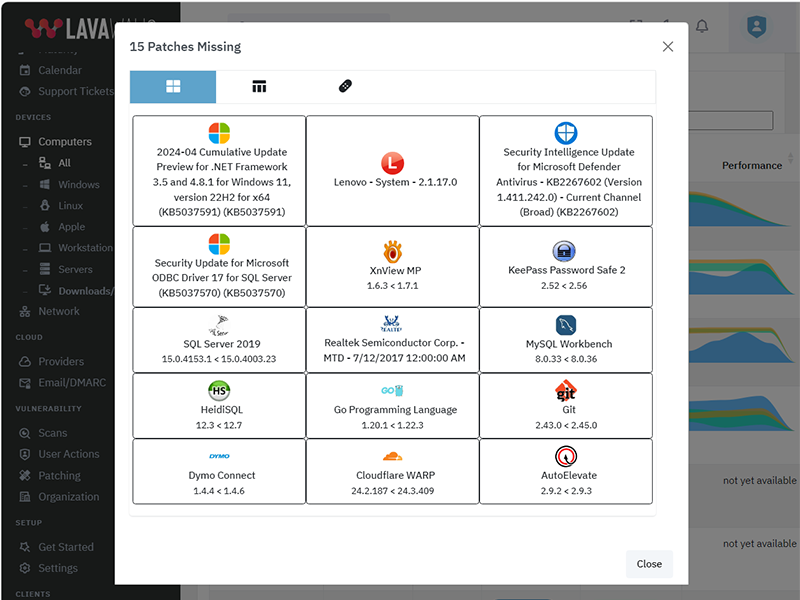
Application Patching
Some of the applications that Lavawall® monitors and audits include:
Logos are property of their respective trademark holders and are not affiliated with ThreeShield or Lavawall. We have not audited the security of most of the listed tools.
The above listing includes products that Lavawall® monitors through public information and/or proprietary statistical analysis.
Although we do have a partner relationship with some of the listed products and companies, they do not necessarily endorse Lavawall® or have integrations with our systems.
Learn More

Flexible Term; Flexible Service
Flexibility for your dynamic business
You need to get your arms around compliance and security and don't want to get locked into “high watermark” monthly invoices or multi-year contracts.
Pay-as-you-need monthly pricing
DIY, full management, and coaching options
Choose the plan that's right for you
Simple pricing. No hidden fees. Advanced features for you business.
Month
Annual
Get 2 months free with Annual!
Minimal
Pay-as-you go. No Commitments.
C$3.25 /computer/Month
C$32.50 /computer/Year
-
1 computer
or 1 of the following cloud integrations:
AWS, Axcient, Datto, Google, Huntress, M365, Sophos Central integrations
(each integration counts as 1 computer) -
50+ application patches
-
30-day Logs
-
Security configuration monitoring
-
Lavawall® support
-
Domain Scanning: C$20/domainDomain Scanning: C$200/domain
-
Level 3+ IT support for IT
-
IT coaching sessions
-
Automatic discount and upgrade to Business Standard at 77 devices
Business Standard
Basic services with 90-day logs
C$250 /Month
C$2,250 /Year
-
150 computers
Additional computers: C$2.50/computerAdditional computers: C$25/computer -
25 domains
Additional domains: C$15/domainAdditional domains: C$150/domain -
AWS, Axcient, Datto, Google, Huntress, M365, Sophos Central integrations
-
7,438+ application patch monitoring
-
90-day Logs
-
Security configuration monitoring
-
Lavawall® support
-
Level 3+ IT support for IT
-
IT coaching sessions
-
Automatic discount and upgrade to Full Service at 950 devices
Full Service
Optimize & audit-ready your IT
$2,250 /Month
$22,500 /Year
-
1,500 computers included
Additional computers: C$2/computerAdditional computers: C$20/computer -
125 domains included
Additional domains: C$10/domainAdditional domains: C$100/domain -
AWS, Axcient, Datto, Google, Huntress, M365, Sophos Central integrations
-
7,438+ application patch monitoring
-
365-day Logs
-
Security configuration monitoring
-
Lavawall® support
-
L3 IT support for IT
-
IT coaching sessions
Frequently Asked Questions
If you can not find answer to your question in our FAQ, you can always contact us or email us. We will answer you shortly!
General Questions
- Two years after a missing Plex Media Server led to the LastPass breach, the
Remote Monitorign and Management (RMM) tools availabel for Manged IT Service Providers (MSPs)
still didn't monitor for it.
Going through industry-specific applications, we noticed many were missing from the big RMM and patching providers. MSPs, insurance providers, and organizations that put their cleints at risk need to know about these risks, which lead to the largest number of critical audit findings and breaches - After 20 years of writing the same audit findings about system configurations, Payment Card Industry (PCI) compliance, and missing patches, our technical co-founder wanted to make it easier fo avoid these findings
- The existing risk visibility tools for insurance underwriters took a shallow look at Internet-facing risks. They -- along with all businesses -- need a deeper view of the threats that could actually lead to breaches.
- Domain risks
- Operating System (OS) patches
- Application patches
- Network vulnerabilities
- Cloud vulnerabilities
- OS configurations
You can use your own logo for the console and notifications. You can also use a CNAME to automatically brand your console.
Note: you cannot currently re-proxy the CNAME to Lavawall® through Cloudflare.
Lavawall® supports the following operating systems:
Lavawall® does not currently support non systemd distributions, such as Devuan, Artix Linux, PCLinuxOS, OpenWRT, and DD-WRT. However, we will support them by the end of 2024.
In June 2024, we combined the Windows and Linux systems for a consistent experience. This added support for RedHat and MacOS.
Privacy & Security
However, we do allow passwords and use passwords as part of the zero-knowledge encryption for your clients' sensitive data, such as Bitlocker keys and Personally-Identifiable Information (PII).
These passwords use Argon2id slow hashes with individual salts and peppers. They go through a few hash rounds on your computer before being sent to our servers for further hashing.
We have added an additional secure tunnel that mimics the TLS process within the public TLS tunnel. This extra tunnel provides authentication and privacy for the workstations and the Lavawall® servers to prevent attacks such as the one that took down Solar Winds.
Remote access is not enabled for read-only and audit situations.
Get In Touch
Have a quick question and don't want to talk? Send us a quick note with the form below and we'll reply within one business day.
NW Calgary:
ThreeShield Information Security Corporation
600 Crowfoot Crescent N.W., Suite 340
Calgary, Alberta
T3G 0B4
SE Calgary:
ThreeShield Information Security Corporation
105, 11500 - 29th St. SE
Calgary, Alberta
T2Z 3W9
Canada

